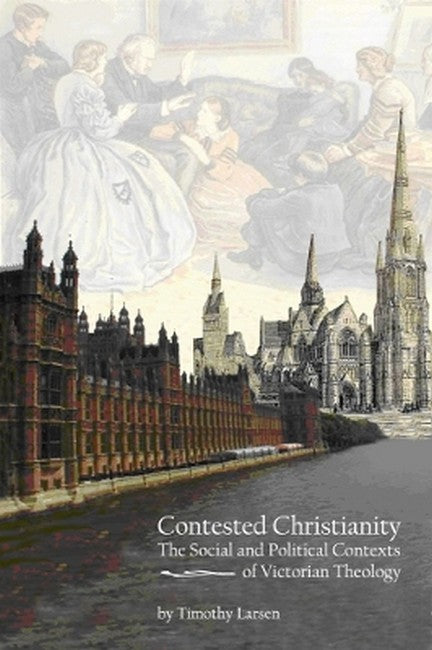Timothy Larsen is Carolyn and Fred McManis Chair of Christian Thought at Wheaton College. Among other works, Larsen has authored Friends of Religious Equality: Nonconformist Politics in Mid-Victorian England and Crisis of Doubt: Honest Faith in Nineteenth-Century England.
Request Academic Copy
Please copy the ISBN for submitting review copy form
Description
Introduction Part One: The Social Contexts of a Private Faith 1. Gender Egalitarianism: The Baptist Women of the Mill Yard Church 2. Religious Respectability: The Reverend Newman Hall's Divorce Case 3. Spiritual Exploration: Thomas Cook, Victorian Tourists, and the Holy Land Part Two: The Social Contexts of a Contested Faith 4. Biblical Criticism and the Crisis of Belief: D. F. Strauss's Leben Jesus in Britain 5. Biblical Criticism and the Desire for Reform: Bishop Colenso on the Pentateuch 6. Biblical Criticism and Anti-Christian Rhetoric: Joseph Barker and the Case against the Bible 7. Biblical Criticism and the Secularist Mentality: Charles Bradlaugh and the Case against Miracles 8. The Appeal of Victorian Apologetics: Thomas Cooper and the Case for Christian Orthodoxy Part Three: The Politics of Free Church Polity 9. Free Church Ecclesiology: Lay Representation and the Methodist New Connexion 10. Free Church Politics and the Gathered Church: The Evangelical Case for Religious Pluralism 11. Free Church Politics and Contested Memories: The Historical Case for Disestablishment 12. Free Church Politics and the British Empire: The Baptist Case against Jamaica's Colonial Governor Conclusion Notes
Timothy Larsen challenges many stereotypes of Victorian religion in this volume. He shows that Evangelical Nonconformists, far from being uniformly obscurantist or fanatical, could be creative and fair-minded; and he reveals that reflective freethinkers could return to the faith they had once deserted. David Beddington, Professor of History, University of Stirling

